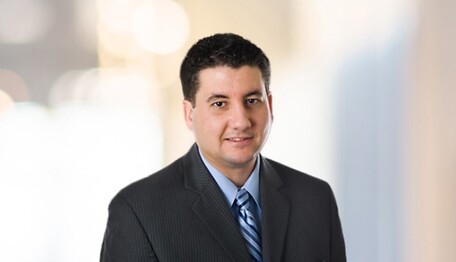New York Court Enforces Economic Loss Doctrine
The economic loss doctrine is a legal principle that has confused and frustrated subrogation practitioners since its inception. Unfortunately, once practitioners understand the basic theory, they realize how frustrating it can be. If there was any doubt about the doctrine’s effect in New York, the Appellate Division put that to rest in a recent ruling on a subrogation case in which it bolstered the economic loss doctrine defense.
In Cincinnati Ins. Co. v. Emerson Climate Tech., Inc., No. 534979, 2023 N.Y. App. Div. LEXIS 1952 (3d Dep’t 2023), the Supreme Court of New York, Appellate Division, Third Department (Appellate Division) reviewed the New York Supreme Court’s rulings on the effect of the economic loss doctrine in a subrogation action. Upholding the lower court’s rulings, the Appellate Division affirmed the trial court’s orders dismissing the plaintiff’s second amended complaint against three defendants.
The plaintiff’s insured, Owera Vineyards, LLC (Owera), owned and operated a winery. Owera used a glycol process chiller for its stainless-steel wine storage tanks to ensure the temperature was properly regulated and the wine did not spoil. The chiller was sold by defendant Benjamin J. Guthrie (BJG) and designed, manufactured, marketed and sold by defendants Legacy Chiller Systems, Inc. (Legacy) and J & M Fluidics, Inc. (JMF). Defendant Emerson Climate Technologies, Inc. (Emerson) manufactured the compressor that was a component part of the chiller system.
In 2019, the compressor for the chiller caught fire, leading the chiller to malfunction. Because of the malfunction, approximately 6,000 gallons of wine were subjected to higher temperatures and damaged. Owera was forced to sell the wine at a much lower rate and claimed a loss of $533,329.90. Owera then submitted a claim to the carrier, which reimbursed Owera pursuant to its policy.
In October of 2021, the plaintiff (Insurer) filed suit – Legacy, JMF and Emerson being the three defendants in the case relevant to this appeal. In Insurer’s second amended complaint, it alleged strict products liability. Following the lead of Emerson, Legacy and JMF all eventually moved to dismiss Insurer’s complaint. In three separate orders at the beginning of 2022, the trial court granted the defendants’ motions and Insurer appealed.
Because courts across the country have interpreted the economic loss doctrine differently, it is important to look at New York’s interpretation of the doctrine. The court in this case summarized the doctrine stating that “where only economic loss with respect to a product itself is alleged and the underlying transaction is a sale of goods, the purchaser is limited to its contractual remedies and may not maintain the traditional tort causes of action of negligence or strict products liability.”
The trial court held against Insurer in several respects pertaining to the economic loss doctrine. First, it stated that the doctrine protected Emerson since it precludes downstream purchasers from alleging strict liability when the component was installed before the end user purchased the integrated product, as was the case here. Second, the court held that this case did not implicate the exception to the doctrine whereby a faulty product leads to damage to other property. Instead, it found the compressor failure to be a circumstance of the product failing to perform as anticipated and, thus, held that Insurers action involved a traditional breach of contract situation. The Appellate Division affirmed the lower court’s findings.
This case is important because it highlights the economic loss doctrine, a potential impediment to recovery that practitioners often do not contemplate early in the life of a claim. It is important for subrogation practitioners to issue-spot potential economic loss doctrine barriers during an investigation. While many states have widened the exceptions to the economic loss doctrine (i.e., damage to other property, catastrophic failure, etc.), some, like New York, are enlarging its effect. Even though the economic loss doctrine defense is something that is often raised at the motion to dismiss phase, identifying a claim that may be vulnerable to attack based on the doctrine early on can sway decisions on when to attempt settlement.

